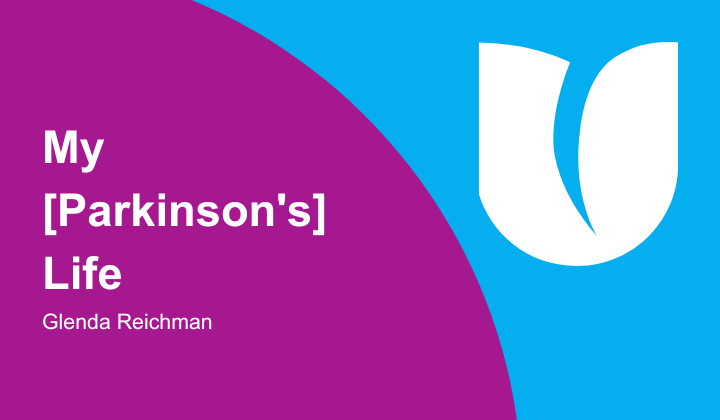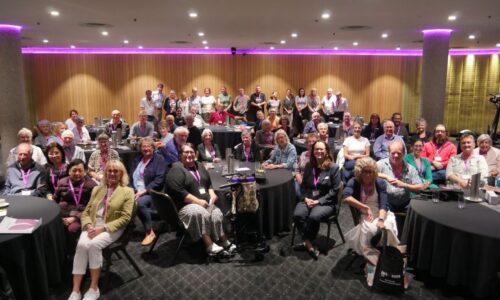Glenda Reichman was born in Benoni, South Africa and grew up in the town near Johannesburg.
“I finished high school and decided to study pharmacy,” says Glenda. “Looking back I was far too young to make a decision about a career then, but I knew I wanted to go to university. My brother was a pharmacist and it looked quite OK as a choice, so off I went.”
While at university, Glenda met her husband Barry, and they began planning their future lives.
In 1986 they moved to London for a few years where Glenda requalified as a pharmacist. They married two years later and emigrated to Australia where she requalified again.
“Our boys were born in Australia,” says Glenda. “Shaun is now 27 and Craig is 24. All of Barry’s family and mine have made the move here. Family is very important to us and it’s nothing to have 18 people for dinner.”
As Glenda’s family life developed, she left pharmacy and ran a successful daycare centre from home for 13 years. It was in 2004, while she was running that business, that Glenda noticed the first signs of something not quite right with her right hand.
“When I was brushing my teeth, or even waving, I realised I was using my left arm,” says Glenda. “On closer attention I realised the fingers on my right hand weren’t moving properly. So off I went to my GP, who sent me to a neurologist. I went on my own, thinking it was nothing serious. He sent me for a battery of blood tests and booked me in for an MRI scan. He told me to bring the scan and Barry to the next appointment.”
This last suggestion tipped off Glenda, just 39, to the seriousness of her specialist’s suspicions.
“I began to get really frightened as this was proceeding a lot faster than I had anticipated,” she recalls. “When I arrived for the appointment with Barry, the neurologist proceeded to tell me that by a process of elimination, and the presentation of classic symptoms, I had early-onset Parkinson’s disease.
“Barry jumped for joy, and I crumbled. I said to him ‘Are you mad? I’ve got Parkinson’s disease!’ I hadn’t realised was he was thinking I could have a brain tumour and Parkinson’s was a much better diagnosis. I would probably die with Parkinson’s, but not from it.”
While Glenda struggled to understand how she came to have Parkinson’s so young and with no family history of the disease, her husband’s positive, supportive attitude meant she could start to adjust.
“We had two wonderful boys who were just ten and seven; how could I curl up into a ball and feel sorry for myself?” she recalls. “I had to fight this with everything I had.”
Glenda’s neurologist suggested she keep the diagnosis to herself.
“Nobody needs to know, your symptoms are mild, you are young,” she says he advised. “So I listened. I was running a daycare centre and did not want to be labelled with a condition that could impact on my ability to look after young children. I shared the diagnosis with the adults in the family who showered me with loving support, but I did not tell anyone else.
“I learned to hide my mild symptoms and hoped nobody noticed the slight shake in my right hand or question why my handwriting was so small.
“As part of my pharmacy degree I had studied a topic on Parkinson’s which was all about how it affected old people, but nobody had told me it could also affect young people. How I wish someone young had shared their story. Maybe it would have made my diagnosis easier to accept.”
During what Glenda refers to as her ‘silent years’ as she kept her diagnosis secret, she found the support groups from Parkinson’s NSW were helpful, whether a teleconference group or face-to-face with the Tulip Belles’ monthly meeting.
“All this gave me the strength to reach a turning point, ten years on, where I was ready to share my story,” says Glenda. “I invited my close friends to my 49th birthday lunch and told them about my diagnosis. I wanted it to be a happy occasion and a celebration of life.”
By early 2016, Glenda had decided to have Deep Brain Stimulation surgery, after much research and consideration.
“I was well-prepared, and I came through with no complications,” she says. “I wanted to have it at the optimum time for improved control and it’s given me a second chance at life. I am not currently in the workforce but am busy as a wife and mum.”
Today Glenda continues to share her experience of living with Parkinson’s and has even written an e-book, Love Yourself and Laugh, Laugh, Laugh. This book details Glenda’s experience of Parkinson’s and how she made decisions about surgery as well as managing various symptoms.
“I want to help as many people as possible,” says Glenda. “It took me a long time to share my diagnosis but now I am completely open. If people want to ask me anything about Parkinson’s I am happy to talk about it.”








